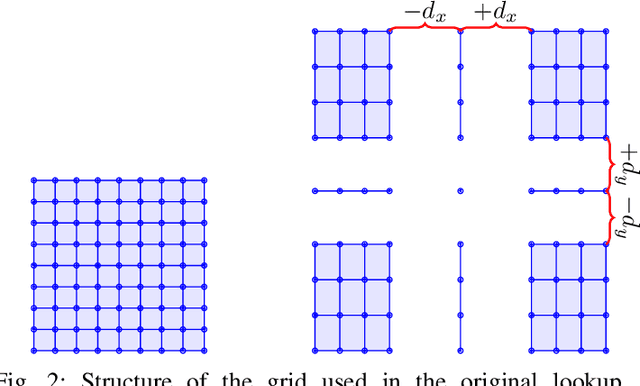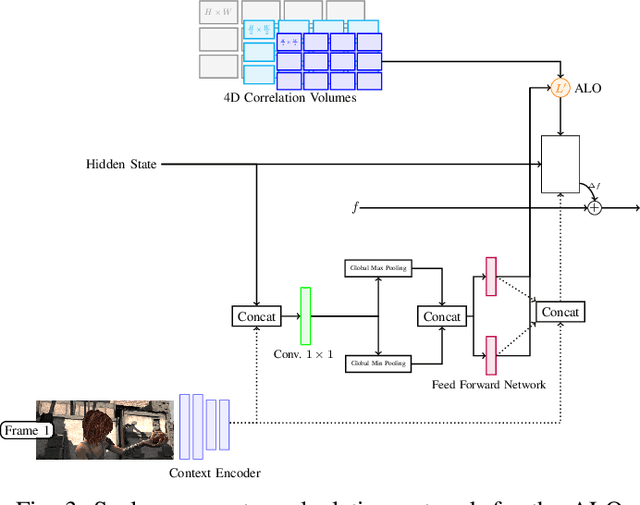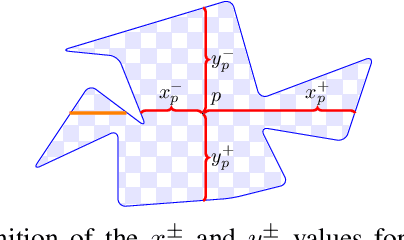Navid Eslami
Rethinking RAFT for Efficient Optical Flow
Jan 01, 2024



Abstract:Despite significant progress in deep learning-based optical flow methods, accurately estimating large displacements and repetitive patterns remains a challenge. The limitations of local features and similarity search patterns used in these algorithms contribute to this issue. Additionally, some existing methods suffer from slow runtime and excessive graphic memory consumption. To address these problems, this paper proposes a novel approach based on the RAFT framework. The proposed Attention-based Feature Localization (AFL) approach incorporates the attention mechanism to handle global feature extraction and address repetitive patterns. It introduces an operator for matching pixels with corresponding counterparts in the second frame and assigning accurate flow values. Furthermore, an Amorphous Lookup Operator (ALO) is proposed to enhance convergence speed and improve RAFTs ability to handle large displacements by reducing data redundancy in its search operator and expanding the search space for similarity extraction. The proposed method, Efficient RAFT (Ef-RAFT),achieves significant improvements of 10% on the Sintel dataset and 5% on the KITTI dataset over RAFT. Remarkably, these enhancements are attained with a modest 33% reduction in speed and a mere 13% increase in memory usage. The code is available at: https://github.com/n3slami/Ef-RAFT
Blacksmith: Fast Adversarial Training of Vision Transformers via a Mixture of Single-step and Multi-step Methods
Oct 29, 2023Abstract:Despite the remarkable success achieved by deep learning algorithms in various domains, such as computer vision, they remain vulnerable to adversarial perturbations. Adversarial Training (AT) stands out as one of the most effective solutions to address this issue; however, single-step AT can lead to Catastrophic Overfitting (CO). This scenario occurs when the adversarially trained network suddenly loses robustness against multi-step attacks like Projected Gradient Descent (PGD). Although several approaches have been proposed to address this problem in Convolutional Neural Networks (CNNs), we found out that they do not perform well when applied to Vision Transformers (ViTs). In this paper, we propose Blacksmith, a novel training strategy to overcome the CO problem, specifically in ViTs. Our approach utilizes either of PGD-2 or Fast Gradient Sign Method (FGSM) randomly in a mini-batch during the adversarial training of the neural network. This will increase the diversity of our training attacks, which could potentially mitigate the CO issue. To manage the increased training time resulting from this combination, we craft the PGD-2 attack based on only the first half of the layers, while FGSM is applied end-to-end. Through our experiments, we demonstrate that our novel method effectively prevents CO, achieves PGD-2 level performance, and outperforms other existing techniques including N-FGSM, which is the state-of-the-art method in fast training for CNNs.
 Add to Chrome
Add to Chrome Add to Firefox
Add to Firefox Add to Edge
Add to Edge